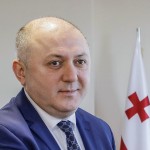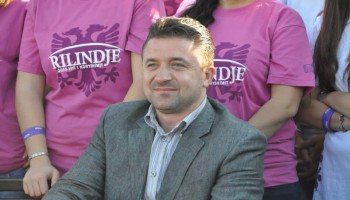The 45-second clip, published online by Fokus, a Macedonian weekly newspaper, shows what appears to be an apartment with computers and materials allegedly used to counterfeit Macedonian passports.
But MVR said in a press release that biometric security features on current Macedonian passports place them among the most secure in Europe, and that there was as yet no evidence of forgery.
“The footage may be inaccurate or commissioned by a political party,” police spokesperson Ivo Kotevski told Balkan Insight.
Fokus says it received the video footage and 14 photographs from an “anonymous citizen,” and that if true, the false passports could have been used fraudulently during Macedonia’s 2014 elections, which took place in March and April. The Social Democratic Union of Macedonia (SDSM), the country’s main opposition party, has previously accused the ruling party VMRO-DPMNE of giving false IDs to ethnic Macedonians living in Albania to influence election results.
A statement released by VMRO-DPMNE sought to ridicule the alleged expose. It said: “The footage caused us to laugh … It would have been humorous if it was not tragic. The creator of this footage either had a bad day, or his capacities are limited.”
Kotevski said police would not officially investigate until Fokus submits an official complaint; however, the paper responded that the duty to investigate lies with the public prosecutor, not MVR, and that the paper had already turned over all its evidence.
SDSM spoke out against what it said were attempts by VMRO-DPMNE and Minister of Internal Affairs Gordana Jankuloska to interfere with the prosecutor’s investigation.
About 1.8 million voters were registered for Macedonia’s 2014 elections, according to the OSCE. Approximately 5,500 respondents in Albania’s 2011 census identified themselves as ethnic Macedonians, although about 434,500 others did not declare their ethnicity or considered it “not relevant.” OSCE’s Office for Democratic Institutions and Human Rights, which monitors elections in Macedonia, had no immediate comment on the video.





